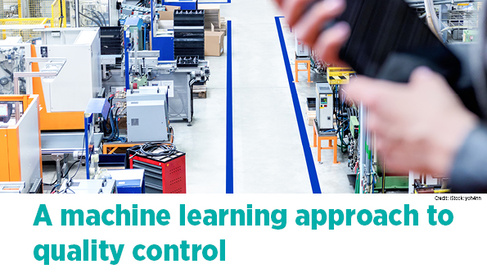A machine learning approach to quality control

Submitted by Sarah Fell on Sat, 14/11/2020 - 15:51
Most of the products we take for granted contain huge numbers of components assembled in multiple stages by different manufacturers. Quality control is vital throughout the assembly process with rigorous testing required at every step.
But with large numbers of components and assembly stages, testing every part ‘by hand’ is time-consuming and expensive.
The authors wanted to know if they could use machine learning to reliably predict failure rates and, by doing so, reduce the costs of testing, improve quality control and reduce delivery times.
Their research suggests that taking a machine learning approach to quality control can be beneficial for manufacturers when the numbers of faulty products are low. In those circumstances, the cost-savings of using an algorithm can outweigh the risks and costs associated with supplying substandard products.
